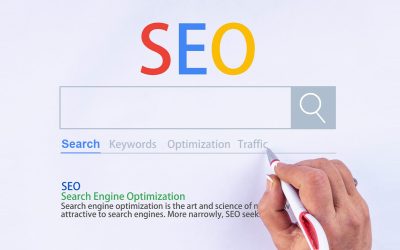Google recently announced an update to its search documentation. The search engine giant revealed that it added a new ninth option to the list of sources used for generating title links in its search results. This latest addition, reported by Barry Schwartz, now includes the og:title meta tags as a source for determining title links. This update means that you should focus better on og:title tags, ensuring they precisely represent page content while driving user engagement. Partnering with a search engine optimization company is a practical way to stay up to date with Google’s changes and implement the right strategies to maintain strong online visibility.
Understanding the OG Title
The og:title tag, short for open graph title, is part of the open graph protocols developed by Facebook. It is used by social media platforms such as Instagram to control how the title of a piece of content appears when shared on social media sites. It may differ from the traditional HTML title tag, which is an on-page element primarily used by Google to create title links.
What is a Title Link?
The title of a search result on Google that links to a web page is the title link of a webpage. It is the primary link that directs a user to the website from the search engine result page (SERP). The title link conveys the meaning of the content on a website in the shortest, most concise way possible and significantly influences the click-through rate (CTR).
Impact of Google’s Search Documentation Update on SEO
To fully comprehend the impact of this update on SEO, webmasters need to understand factors influencing search result listings. The title link generation process for Google is completely automated and uses a list of sources to automatically determine the title links. The goal of this process is to build a title link that accurately describes each result on the SERP.
The list of sources Google may use for your title link are:
- Content in title elements
- The main visual title shown on the page
- Heading elements, such as H1 elements
- Content in OG title meta tags
- Other content that’s large and prominent through the use of style treatments
- Other text contained in the page
- Anchor text on the page
- Text within links that point to the page
- WebSite structured data
Google’s search engine algorithms are complex and take multiple factors into account for ranking your website. It may take some time to detect any changes to the above elements as Google has to recrawl and reprocess your webpage. However, it is important to note that Google is yet to provide the exact information on how it will prioritize the og title in comparison to other sources.
For SEO professionals and webmasters, this update highlights the rising importance of optimizing the og:title tag not just for social media but also for SEO. The inclusion of og title tag gives Google more flexibility to decide which title link to display for your search result listing. While Google generally prefers to pick a heading element within your HTML to create a title link, it may also opt for another source.
So in order to ensure enhanced user experience, it is essential to maintain consistency between your title element and og title. The selection of the title link is unpredictable, and proper re-assessment of all sources ensures strong online visibility across different platforms. Ultimately, Google’s algorithm for title links prioritizes user experience, so following the best practices is crucial to driving traffic and improving your website’s ranking.
With this update, it is vital for webmasters to review their current title tags and update them to ensure they align with this new best practice. Optimizing the og title tag can help businesses maintain control over their appearance in search results and also improve consistency across platforms. A carefully crafted og title tag that best represents the webpage content will attract clicks. Informative and engaging title links can lead to better user engagement and higher ranking. Leveraging professional SEO consulting services can help you stay updated with Google’s evolving practices and maintain a robust online presence.




